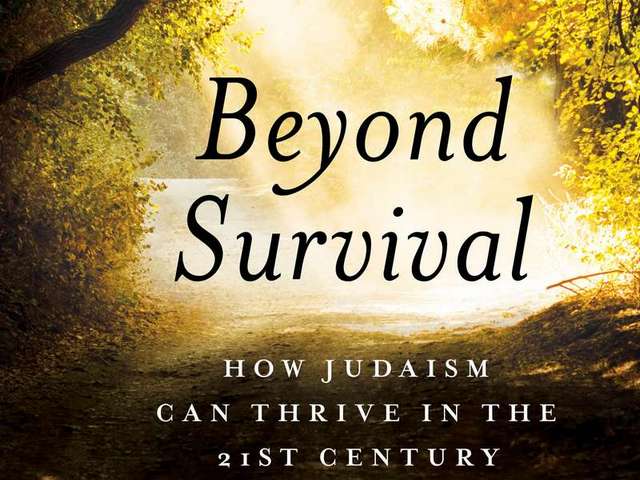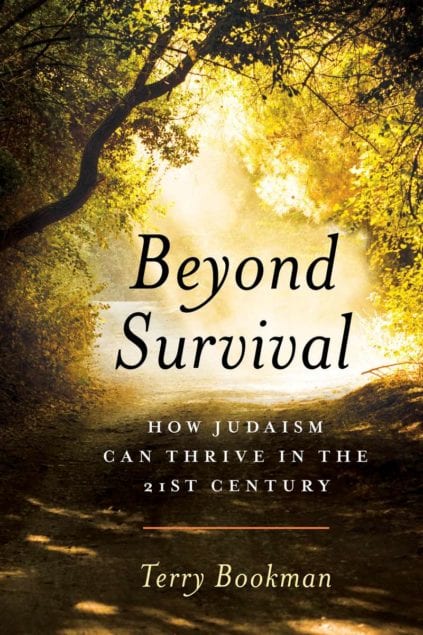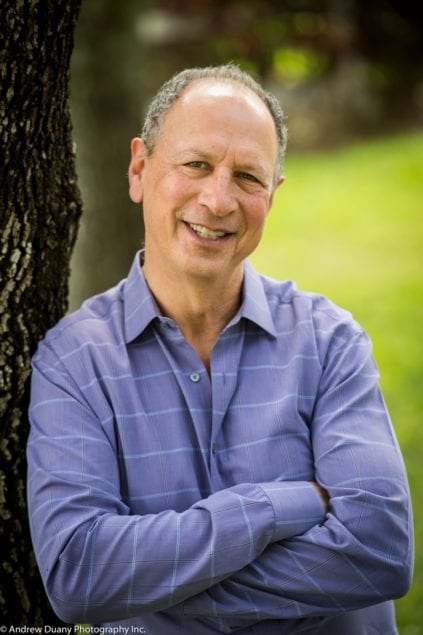Beyond Survival: How Judaism Can Thrive in the 21st Century (Rowman & Littlefield, May 15, 2019) by Rabbi Terry Bookman offers a new Jewish vision that moves beyond the centuries-old survival phase and into an unfamiliar, yet necessary phase of thriving.
Beyond Survival proposes that it is time for Jews to face the new reality of 2019. Rabbi Bookman asks fellow Jews: “Can we, the world’s number one survival experts, embrace this new possibility, this new identity of thriving?”
Beyond Survival offers an alternative vision for the Jewish future — a paradigm shift, one in which individuals can find an open and accepting community that joyously and creatively celebrates their sacred way of life.
The book begins by taking an in-depth look at the obstacles that currently prevent their growth as a people. One of the very first things that needs to happen is the Jewish community must take down the invisible, but keenly felt “Do No Enter” sign. Jews need to lose the language of exclusivity, such as goy and shikse. Beyond Survival addresses the other Big Three obstacles plus one that Jews must overcome: anti-semitism, the Holocaust, and the precariousness of the State of Israel, plus one: combatting assimilation (ie. racism).
Rabbi Bookman explains how Jews can wean themselves off the Big Three while at the same time recreate and recast all their communal institutions to reflect the new reality. He acknowledges that change is never easy, but he draws from his decades of experience as a pulpit rabbi and innovator, to show the reader the way to surmount each obstacle. Perhaps the most difficult obstacle to overcome for Jews, and any religion or culture, is racism, but Rabbi Bookman insists that it is essential for Jews to own their own history of racism and begin to take responsibility for it.
“If we are truly going to move ‘beyond survival,’ it cannot come at the expense of any other individual or group,” he said.
In each successive chapter, Beyond Survival looks at the opportunities that are in front of them — from active conversion; emerging Jewish communities around the globe; a new understanding of intermarriage; a realigned relationship of mutuality with a pluralistic Israel; a post-modern understanding of Jewish identity; reimagined synagogues and reinvigorated Jewish institutions, and a community that is truly an open door to all.
In the afterword, Rabbi Bookman suggests how this can all take shape, positing that a thriving Jewish community can be actualized only when we all thrive. Against all the inertia, resignation, negativity and pessimism that pervades our world, Beyond Survival offers hope and a practical, achievable direction for a bright future that we can create together.
About the author
Rabbi Terry Bookman is a connector. His primary “container” is Judaism, but he draws from the truths he has discovered in all faith traditions, meditation, centering prayer, and yoga, psychology, literature, science, the arts, the human potential movement, popular culture, leadership and organizational theory, philosophy, politics, anthropology, and history — and always with a sense of humor.
Rabbi Bookman grew up in New York City. He was an early pioneer in the Chavurah Movement, started the Hillel at Sarah Lawrence College, and created numerous interfaith dialogue and support groups.
For the entirety of his rabbinic career he worked within two communities— Temple Sinai in Milwaukee, WI and Temple Beth Am in Pinecrest. Since retiring from the pulpit in 2015, Rabbi Bookman has taken on the challenge of guiding an “Era of “Transgeneration” for the Mastery Foundation, a transformational interfaith organization. He is the author of three books on Jewish spirituality, as well as the co-author of one on synagogue life. He has delivered talks and workshops throughout the United States and Europe.
Rabbi Bookman resides in Miami with his partner, Noreen Sablotsky. They are parents to eight adult children, four in-law children, two significant others, and eight grandchildren. Talk about an abundance of riches.









Comments are closed.